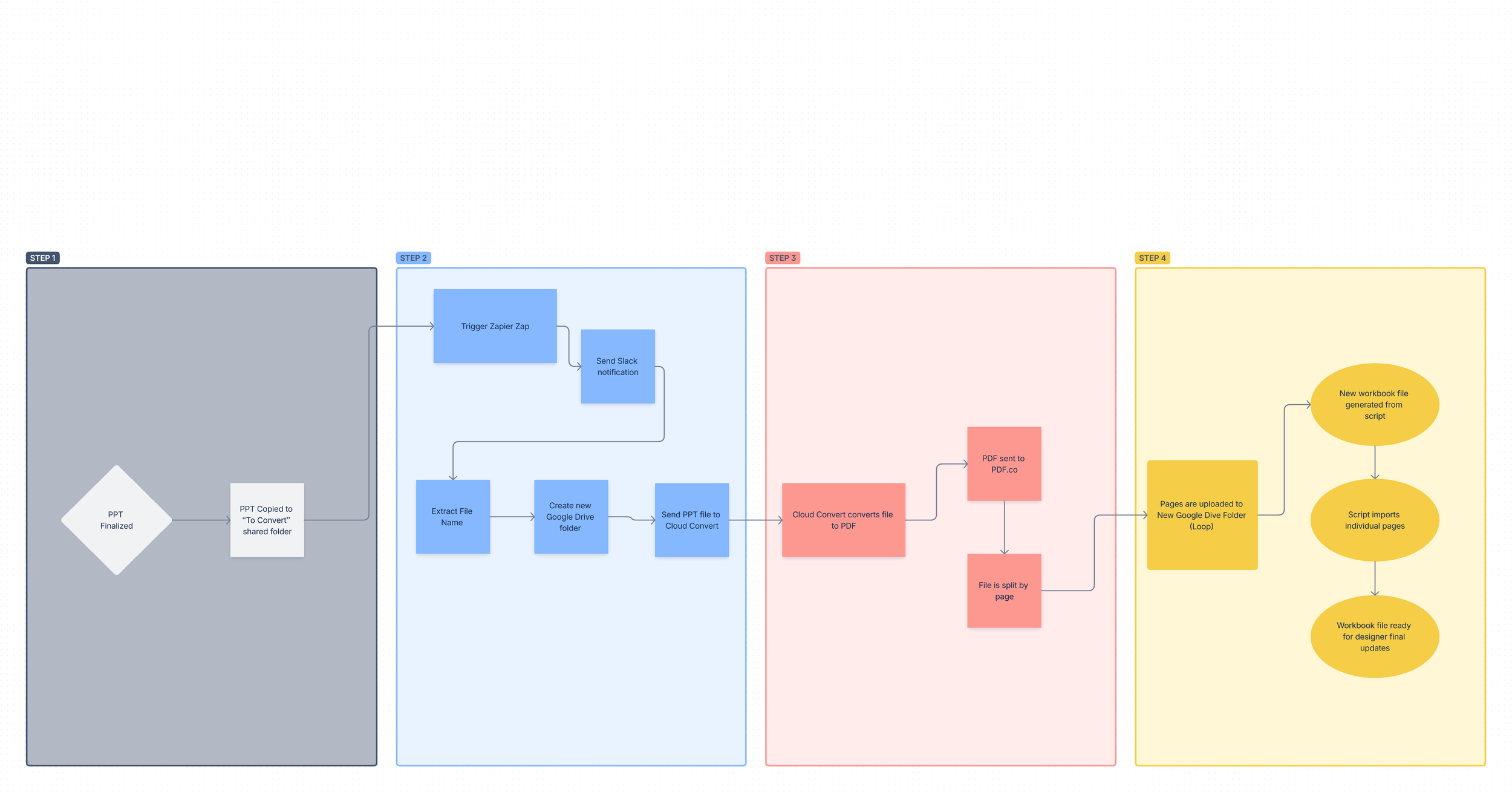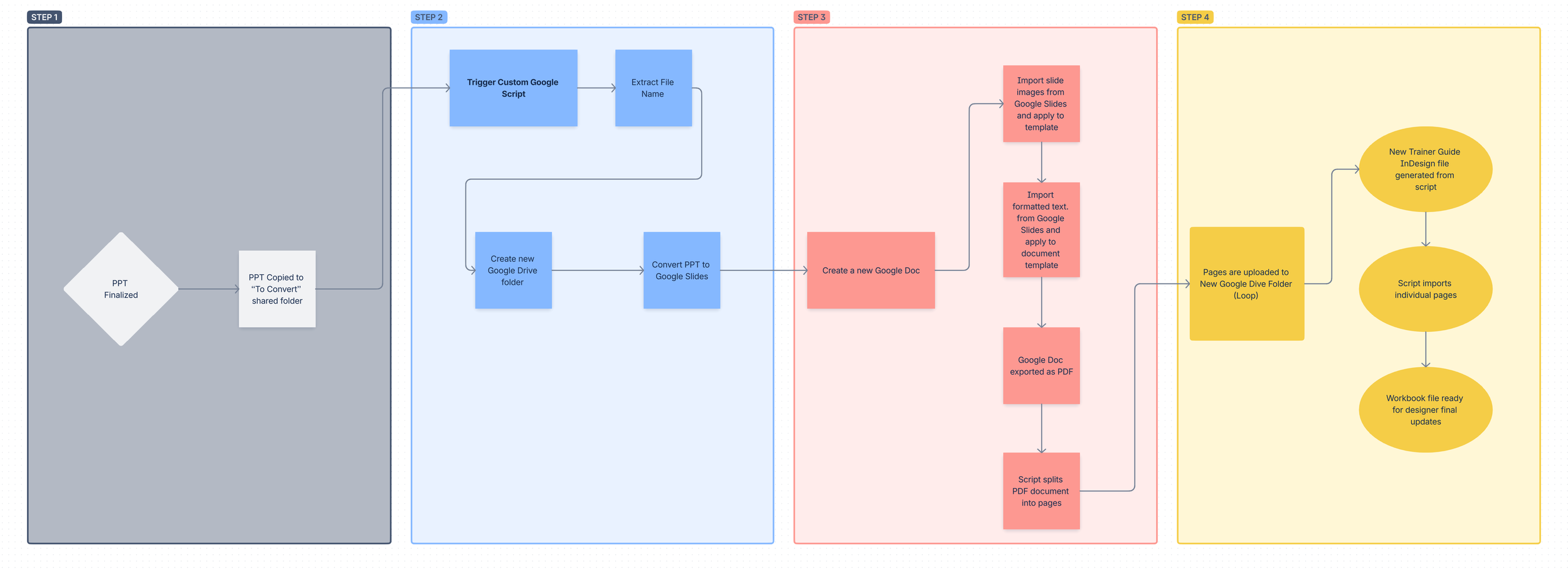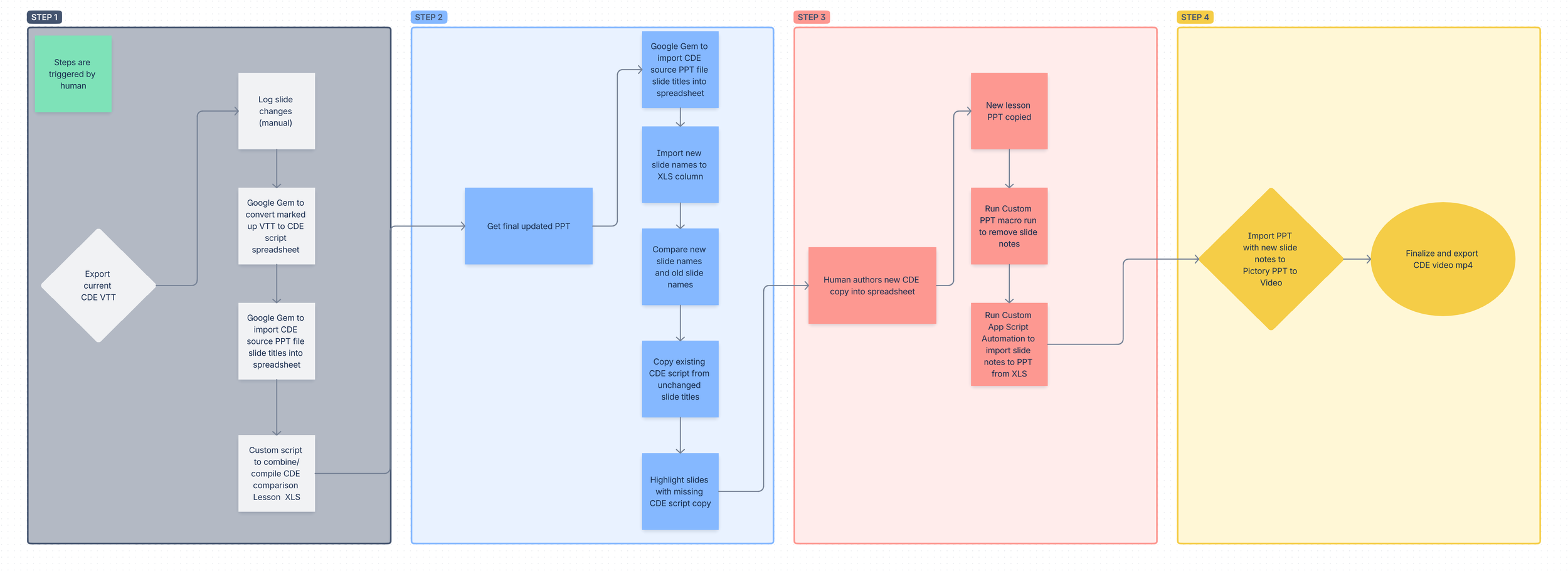AI-Enabled Content Automations
Challenge: Manual content workflows slowed production and updates.
Solution: Designed and tested AI-powered processes that cut enablement video production time from days to hours, and built automations to convert PowerPoint files into trainer guides and workbooks.
Impact: Freed teams from repetitive work, enabling faster updates and more focus on quality.
AI-Enabled Workbook Production Automation
Challenge: Producing workbooks for 300–400 slide courses required a full day of manual effort, slowing release schedules and leaving little time for quality review.
Solution: I designed and implemented a Zapier-based automation pipeline that:
Detects when a PowerPoint file is dropped into a designated folder.
Creates a new course folder named from the file.
Converts the PPT to PDF using CloudConvert.
Splits the PDF into individual slide pages using PDF.co.
Loops and organizes each page into the new folder.
Imports the slides into a custom workbook development script.
Impact:
Reduced workbook production from 1 day to under 1 hour.
Standardized naming and file handling.
Freed the team to focus on polish, QA, and higher-value tasks.
AI-Enabled Trainer Guide Production Automation
Challenge: Producing Trainer Guides for 300–400 slide courses required a full day of manual effort, slowing release schedules and leaving little time for quality review.
Solution: I designed and implemented a custom Google Apps script automation that:
Detects when a PowerPoint file is dropped into a designated folder.
Creates a new course folder named from the file.
Converts the PPT to Google Slides using a Google Script
Compiles a Google Doc by extracting slide images and slide notes and applying a custom document template
Google Doc converted to PDF and split into individual pages
Loops and organizes each page into the new folder.
Imports the slides into a custom trainer guide development script via Adobe InDesign.
Impact:
Reduced Trainer Guide production from 1 day to under 1 hour.
Standardized naming and file handling.
Freed the team to focus on polish, QA, and higher-value tasks.
AI-Enabled Enablement Video Production
Challenge Trainer enablement videos were critical for onboarding instructors, but producing them was time-intensive. Each update required days of scripting, recording, editing, and formatting. This slowed our ability to release updated materials alongside course changes, and limited scalability when supporting multiple products.
Solution I designed an AI-enabled automation pipeline that streamlined the full video production workflow:
Script Automation: Used AI tools to draft narration scripts directly from updated slide decks.
Voiceover Generation: Leveraged text-to-speech with professional-quality AI voices to replace manual recording.
Video Assembly: Automated slide-to-video production with synchronized narration, reducing reliance on manual editing.
Versioning & Updates: Enabled quick swaps of updated slides or narration without recreating the entire video.
Impact
Reduced trainer video production time from several days to just a few hours.
Enabled faster release cycles, ensuring trainer resources were always aligned with the latest courseware.
Increased scalability, allowing the team to support more courses and updates without adding headcount.
Freed instructional designers and editors to focus on quality, creativity, and learner engagement instead of repetitive production tasks.


